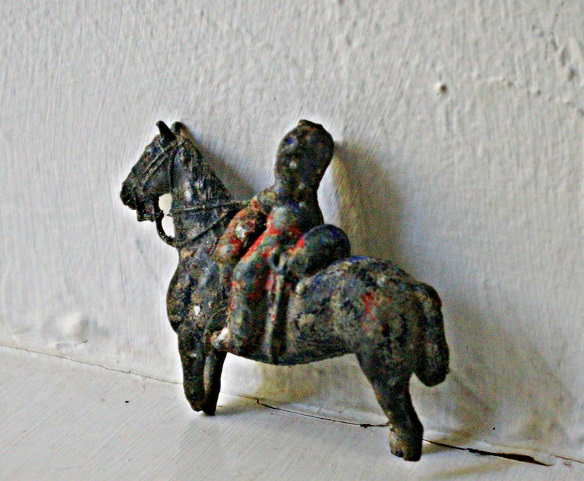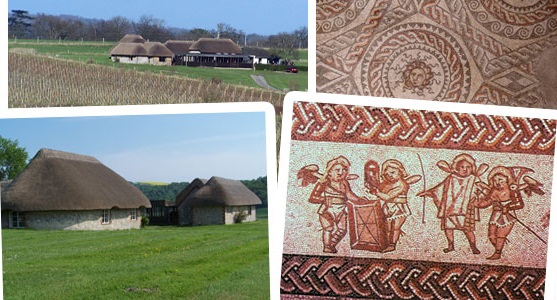We have all had a pivotal moment, or moments in our lives which have led us in a certain direction; for me, it was the tireless and patient mentorship of a group of archaeologists. I therefore, as founder of Archaeologists Engage am passionate about furthering engagement between archaeologists and our wider audience as I believe if we willingly descend from our Ivory Tower, we may be surprised how much can be achieved at ‘ground level’.
As a toddler, I was notorious, for digging in my parent’s garden and having found a small rusted tin of lead soldiers, the fact that ‘interesting things’ came out of the ground was confirmed in my young mind. However, this may have developed no further than a hobby, to be enjoyed on the weekends, if not for the Archaeology Field Unit, of University College London (UCL), at Bignor Roman Villa. The Roman Villa comprises a large courtyard building, of complex sixty-five room plan, expanded over a period of time in the 3rd-4th centuries.

One August trip in 1992 coincided with the annual excavation by the UCL team, focussed at the time, to the east of the known excavated portion. The trenches were taped off but the visitors could talk to the archaeologists as they worked. I asked lots of questions of the site director, David Rudling and his staff and recognising more than average interest, they very kindly talked us through the finds. The site ran short training courses for interested members of the public, alongside their students and despite my young age, the archaeologists agreed to let me attend the next week, accompanied by a parent. In what I was to later learn was a pivotal moment in my life, I was taught the concept of stratigraphy, the importance of straight-sided sections, marking finds bags and drawing with a scale ruler. The archaeologists were patient and informative and never failed to pause and seriously answer a question….and believe me, there were many incessant questions!!

To be surrounded by students, working professionals and the university academics I thrived and requested to return the next year. In fact, I attended the site every year for a week/two weeks in the summer, on my own, parent’s long forgotten, until the excavations were wrapped up. I was always included in the lessons the students were given; taking levels, collecting core samples, dating of pottery. During this 6-7 year period, I was mentored constantly by an available member of staff, never patronised but included to the best of my ability and within what safety regulations would allow. David Rudling also took the time to talk through my stated desire to be a professional archaeologist, with my parents, advising on University departments and subject choices at GCSE and A-level. The engagement of David and his dedicated staff at the UCL Field Unit was vital preparation for my career. I understood ahead of my peers, the pitfalls of a profession of long hours and low pay, that archaeology is often as much the choice of a lifestyle, as it is a career. When applying to university, throughout my studies at Exeter and Reading, and in job interviews I have been able to draw on a depth of experience my peers couldn’t match and a confidence and determination in my chosen field, fostered in the trenches of a West Sussex field.
So I ask you all, Take the Challenge! You too could inspire a child and change archaeology………..ARCHAEOLOGISTS ENGAGE!!!!!
Emily Wapshott is a lifelong field archaeologist, with a specialism in buildings, and one of the founders of ArchaeologistsEngage.
